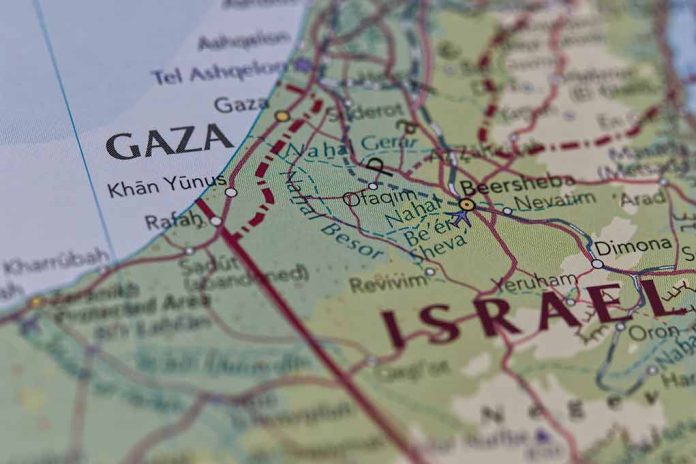
Israel stands on the cusp of crucial negotiations to redefine its future relations with Hamas in Gaza, as Foreign Minister Gideon Saar announces the imminent talks.
Key Takeaways
- Israel will commence negotiations on the next phase of the Gaza ceasefire, focusing on exchanging hostages.
- Israel calls for complete demilitarisation of Gaza.
- The negotiations are scheduled to begin “this week.”
- Israel opposes transferring control from Hamas to the Palestinian Authority.
- Alternative plans by Arab states counter U.S. proposals for Gaza’s future.
Negotiations Set to Begin
Israeli Foreign Minister Gideon Saar has confirmed that Israel is poised to begin negotiations on the second phase of the Gaza ceasefire deal. The discussions focus on the exchange of the remaining Israeli hostages for Palestinian detainees, which marks a critical juncture in the ongoing tensions in the region. The primary goal is to advance the ceasefire agreement’s stability, with a strategic security cabinet session held to solidify this diplomatic path.
Amidst these talks, Israel is firm on its demand for a complete demilitarisation of the Gaza enclave, rejecting any form of military presence that resembles a “Hezbollah model” in the area. Saar has clearly stated the need for this demilitarisation while insisting that no Palestinian Authority presence should feature in this strategic enclave. The negotiations aim to prevent further military escalations, securing the delicate peace that has been achieved so far.
Israel, Hamas are marking 500 days of #Gaza conflict. The first phase of the ceasefire deal is set to expire in about 2 weeks, with negotiations for the next phase still ongoing. Gazans are hoping for a lasting ceasefire to begin rebuilding and returning to their ordinary lives. pic.twitter.com/gCuHfVKUgc
— CGTN Global Watch (@GlobalWatchCGTN) February 18, 2025
Challenges in Implementing Ceasefire
One significant challenge is the timing and commencement of these critical discussions. Previously scheduled for early February, the timeline has shifted, causing uncertainty and highlighting the fragility of these reconciling efforts. Qatar has expressed that formal talks have yet to begin, even as Israeli authorities prepare fervently to engage.
Moreover, alternative proposals by Arab states have been tabled, challenging the U.S. proposition of having control during Gaza’s redevelopment phase. Israeli Prime Minister Benjamin Netanyahu considers exploring these prospects, seeking the best strategy to maintain peace. However, Israel firmly rejects transferring civilian control from Hamas to the Palestinian Authority, preferring a sovereign approach to resolving regional issues.
Hamas expects indirect negotiations with Israel for the second phase of the ongoing Gaza ceasefire to begin “early next week”, an official of the Palestinian group has said.
🔴 LIVE updates: https://t.co/BCL65spLHE pic.twitter.com/Xvpe7nRjhQ
— Al Jazeera English (@AJEnglish) February 14, 2025
A Regional Commitment to Peace
The stakes of these negotiations are pivotal for lasting regional peace. While Israel embraces dialogue and mediation to further negotiations, the complexity of Gaza’s political landscape poses significant barriers to reaching a comprehensive settlement. Saar has reiterated the importance of resilience in diplomacy and leveraging discussions to secure lasting regional stability.
As the world watches keenly, Israel’s diplomacy-first approach ideally leads to a new era of quietude and harmony in this otherwise volatile region. The result of these negotiations holds the key to the prospects of peace and will test Israel’s steadfast commitment to stability and security.


